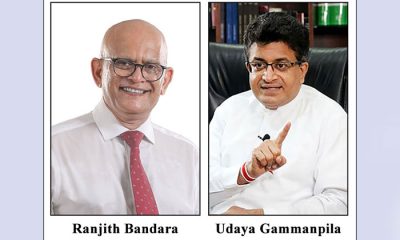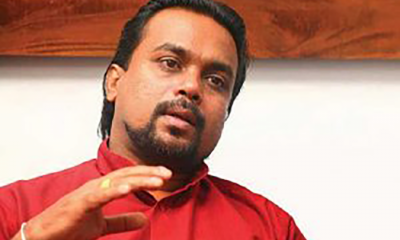News
US pursuing ‘plan B’ with Prez, after Speaker turned down its offer

By Shamindra Ferdinando
National Freedom Front (NFF) leader Wimal Weerawansa on Tuesday alleged that having failed to thwart Ranil Wickremesinghe’s ascent to presidency, the US was now working with the UNP leader to achieve its objectives.
MP Weerawansa, the Chairman of the Uththara Lanka Sabhagaya said that President Wickremesinghe already consented to three of the four US conditions at secret talks in Colombo with top level US delegation that included CIA director William Joseph Burns in February this year.
Addressing a gathering at Sri Lanka Foundation (SLF) at the launch of ‘Nine: The Hidden Story,’ the former Minister claimed that the US and Sri Lanka agreed on the former to access underwater communication cables, monitor passengers passing through the Bandaranaike International Airport (BIA) and positioning of US official above Head of State Intelligence Service (SIS).
The only condition President Wickremesinghe wanted to put off was for US forces personnel to move freely here while being armed, the lawmaker claimed. The former JVPer said that the US delegation separately met President Wickremesinghe, Defence Secretary Kamal Gunaratne and Maj. Gen. Suresh Sally, the head of SIS.
Both the government and the US embassy here declined either to confirm or deny the CIA Chief’s visit on Feb. 14.
Among those present at the book launch were MPs, General Secretary of the Democratic Left Front Vasudeva Nanayakkara, leader of Nidahas Janatha Sabhawa Dullas Alahapperuma, leader of Pivuthuru Hela Urumaya Udaya Gammanpila, leader of Yuthukama civil society group Gevindu Cumaratunga, SLFP General Secretary Dayasiri Jayasekera, Weerasumana Weerasinghe, Ven. Atureliye Rathana, Priyankara Jayaratne, Premanath Dolawatte, Jayantha Samaraweera, Mohamed Muzammil, Nimal Piyatissa, Uddika Premaratne and Gamini Waleboda. Convenor Jathika Sanwidhana Ekamuthuwa Dr. Gunadasa Amarasekera, Gen. Secy of Deshahitheshi Jathika Viyaparaya Dr. Wasantha Bandara, Attorney-at-law Kalyananda Thiranagama were also present along with ex-MPs, Dew Gunasekera and Thilanga Sumathipala.
MP Weerawansa questioned whether US-Sri Lanka understanding on the above mentioned conditions would be acceptable to India.
Declaring that the US dictated terms to Sri Lanka on a number of matters ranging from economy to political setup, Colombo District MP Weerawansa asserted that the US ensured the withholding of the IMF bailout package till Colombo agreed to above terms and not China’s letter to it as propagated by some.
“People believe China facilitated the IMF package by throwing its weight behind it. However, the IMF facility seemed to be arranged by the US,” MP Weerawansa said, underscoring US Ambassador Julie Chung inquiring from Secretary to the Treasury Mahinda Siriwardena about how Sri Lanka intended to spend the money. The declaration was made in the presence of Hu Wei, Chargé d’affaires of the Chinese embassy here.
Immediately after finalisation of the agreement with the IMF, Sri Lanka received the first tranche.
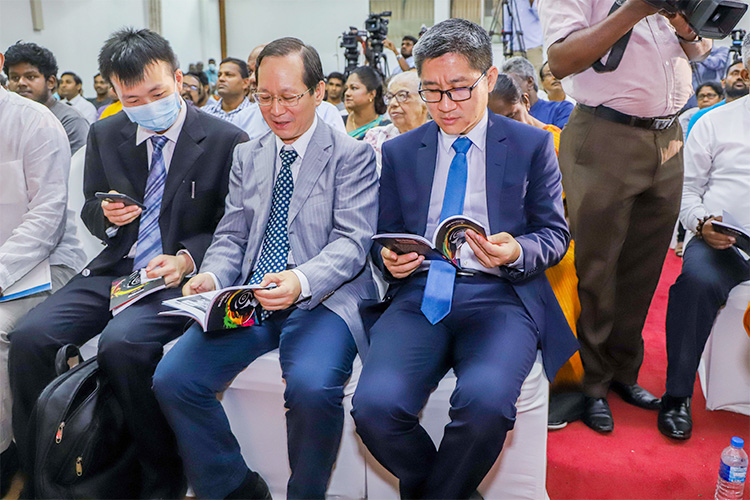
Hu Wei, Chargé d’affaires of the Chinese Embassy in Sri Lanka (on right) pic courtesy NFF
Referring to US Under Secretary for Political Affairs Victoria Nuland’s meetings with the then President Gotabaya Rajapaksa (in March 2022) and his successor (Feb 2023 before CIA’s Chief’s Feb 14 visit), lawmaker Weerawansa said that the US was going ahead with its agenda (plan B) though it couldn’t implement the original strategy. MP Weerawansa named Nuland as the architect of Gotabaya Rajapaksa’s ouster and its Ambassador here Julie Chung as its Director.
MP Weerawansa stressed that the US would ensure continuation of instability as part of its overall strategy to maintain an environment conducive for operations here.
The NFF leader said that he launched ‘Nine: The Hidden Story,’ to make the public aware as to how Gotabaya Rajapaksa, who secured a staggering 6.9 mn votes at the last presidential election in November 2019 was unconstitutionally removed. However, the US project here should be examined against the backdrop of global and regional changes in the wake of the growing Chinese challenge to the US hegemony.
Declaring that Wickremesinghe hadn’t been the original choice of the US, MP Weerawansa said, asserting that the US planned for an interim administration led by Speaker Mahinda Yapa Abeywardena. The parliamentarian compared the US strategy here with what they did in Libya in the run-up to the execution of Muammar Gaddafi in October 2011and after, and Ukraine where the US in 2019 installed Volodymyr Zelenskyy as President after ousting the legitimately elected President in 2014 in the Maidan uprising instigated by it after spending as much as five billion dollars as admitted by Nuland.
Pointing out that both interim administrations in Libya and Ukraine were led by respective Speakers, MP Weerawansa said that the US wanted the same here. However, the US couldn’t convince Speaker Abeywardena to accept the leadership after Gotabaya Rajapaksa resigned under duress, the former minister said.
US Ambassador Julie Chung went to the extent of rushing to the Speaker’s official residence as protesters declared plans to take control of parliament in a last ditch attempt to persuade the SLPP MP. Ambassador Chung made this unprecedented move in the wake of a religious leader and an Opposition MP’s failure on the previous day to win over the Speaker, MP Weerawansa said.
“When the Speaker pointed out to Ambassador Chung that in terms of the Constitution, in the event of the President’s resignation under whatever the circumstances, the Prime Minister succeeded the President, Ambassador Chung assured the Speaker he should assume the presidency and they would look after other issues,” MP Weerawansa said.
Commenting on the Indian role in the US project, MP Weerawansa said that both countries asked President Gotabaya Rajapaksa to resign after sacking the then Premier Ranil Wickremesinghe. President Rajapaksa who was overseas at that time though receiving both letters from his Secretary Gamini Senarath declined to sack Wickremesinghe, MP Weerawansa said.
India declined to provide an aircraft for President Rajapaksa to leave the country as he refused to sack Premier Wickremesinghe.
Lawmaker Weerawansa said that the UNP leader consolidated his position before those who spearheaded the campaign against his predecessor moved against him.
Within hours after parliament elected him as the President on July 20, 2022, President Wickremesinghe ordered the military to clear the Presidential Secretariat and took measures to bring the situation under control.
The US interest in strategically located Sri Lanka should be examined taking into consideration its Indo-Pacific strategy and the China-Russia entering into new relationships with major countries as well as the developments taking place in Africa.
The ongoing bloodshed in Sudan following the eruption of fighting between Sudanese armed forces and Rapid Support Forces was caused by Western powers seeking to undermine the government, MP Weerawansa said. The US couldn’t stomach any country moving away from its orbit and seeking closer relations with China or Russia.
The US marshaled all elements and brought them under one umbrella to destabilize a government, MP Weerawansa said. The fall of President Gotabaya Rajapaksa’s government is a case in point, the NFF leader said, questioning the commemoration of LTTE at the Galle Face protest site and ongoing attempts to legalize same sex marriage et al. Such strategies should be studied against the backdrop of intense attacks on the Buddhist clergy, the former minister said.
The MP warned of dire consequences unless political parties represented in Parliament, civil society and the media take up a clear stand on the US intervention. The NFF leader found fault with the media for failing in its duty to educate the public of the developments taking place outside Sri Lanka impacted on the country.
The MP alleged that if the US move to install Speaker Abeywardena as the President succeeded, perhaps Sarath Fonseka could have been accommodated in that administration. Chief of Defence Staff General Shavendra Silva would have definitely been in that, he said. Questioning the senior most serving officer being away in India on the invitation of New Delhi, MP Weerawansa said that the US had exerted pressure on General Silva over the human rights issue in a bid to win him over. The US, MP Weerawansa said dictated terms to both President Rajapaksa and protesters as well simultaneously as it realised all wanted to be in the good books of the superpower.
News
“Investments in Professional Education Are Investments in Institutional Strength and National Progress” – PM
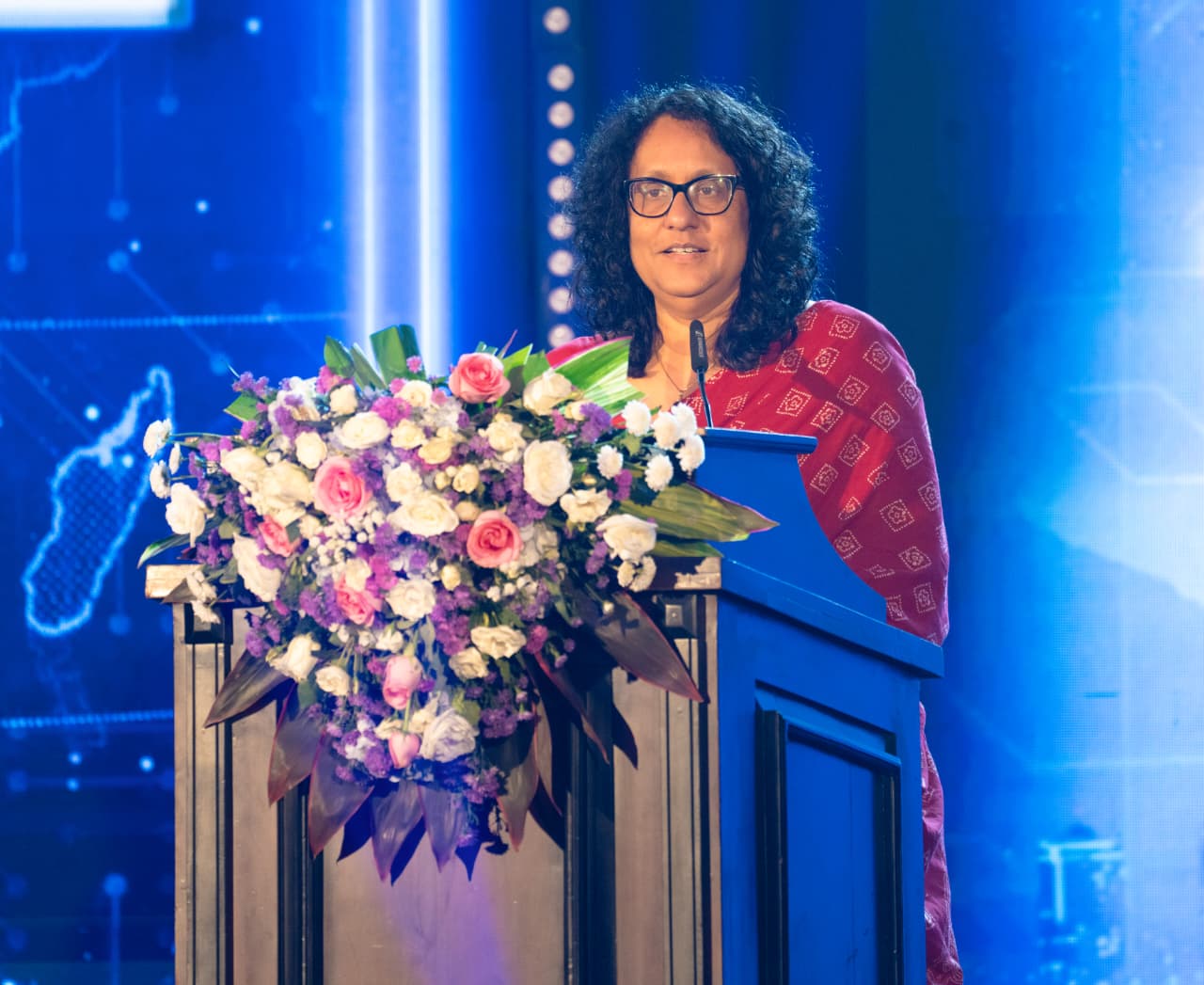
Prime Minister Dr. Harini Amarasuriya stated that strengthening Sri Lanka’s professional education framework and aligning it with internationally recognised standards is essential to building a skilled, ethical, and globally competitive workforce.
The Prime Minister made these remarks while addressing the official launch of the QS-accredited Chartered Qualification in Human Resource Management (CQHRM) at SCQF Level 11 (New Syllabus), organised by the Chartered Institute of Personnel Management (CIPM) Sri Lanka under the theme New Heights of Recognition. The event was held on Wednesday, 18 February at the Cinnamon Life, Colombo.
Emphasising the importance of expanding professional and vocational education pathways, the Prime Minister stated:
“This is of crucial importance to us in broadening our educational pathways and opportunities. We need to increase access to education that is globally recognised and that offers multiple pathways in professional and vocational fields. This aligns closely with the reform process we have initiated in the education sector and with our commitment to lifelong learning where individuals can work and learn at the same time, and where education is not limited to a particular age group but continues throughout life.”
Highlighting Sri Lanka’s national priorities, the Prime Minister further observed:
“At a time when Sri Lanka is focused on economic recovery, institutional reform and sustainable growth, the need for competent and ethical human resource leadership is clear. A competitive economy depends not only on investment and infrastructure but also on skilled professionals who can lead institutions effectively.”
The Prime Minister noted that the QS accreditation of the CQHRM qualification strengthens international recognition of Sri Lankan human resource professionals, enhances professional progression pathways, and reinforces confidence in the country’s professional education system. She also underscored the role of human resource leadership in advancing equity and inclusion within workplaces, including fair recruitment practices, safe working environments, leadership development for women, and inclusive policies for persons with disabilities and neurodivergent individuals.
Addressing the future of work, the Prime Minister stressed the importance of preparing for rapid technological transformation, including the growing impact of artificial intelligence on industries and workforce management, encouraging institutions to proactively adapt to emerging demands.
The event was attended by Deputy Minister of Industry and Entrepreneurship Development, Chathuranga Abeysinghe, along with other distinguished guests.
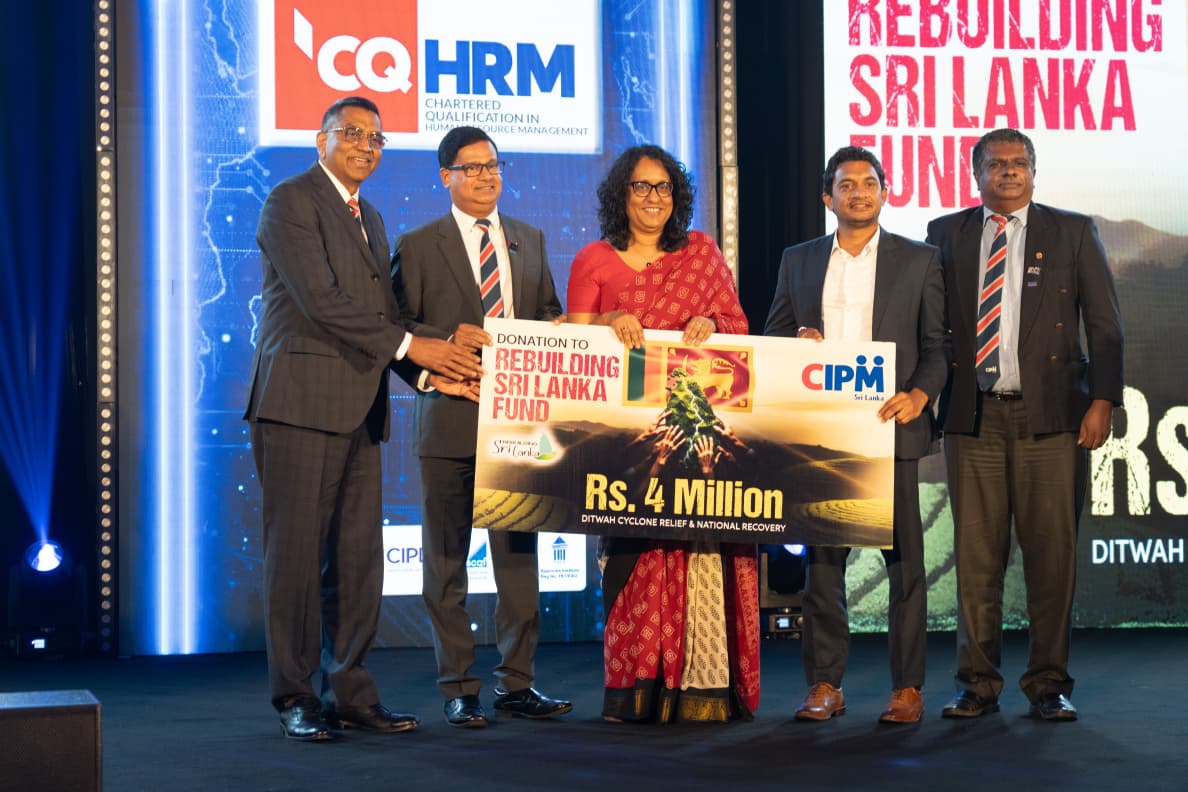
[Prime Minister’s Media Division]
Latest News
Advisory for Severe Lightning issued to the Western and Sabaragamuwa provinces and Nuwara-Eliya, Galle and Matara districts
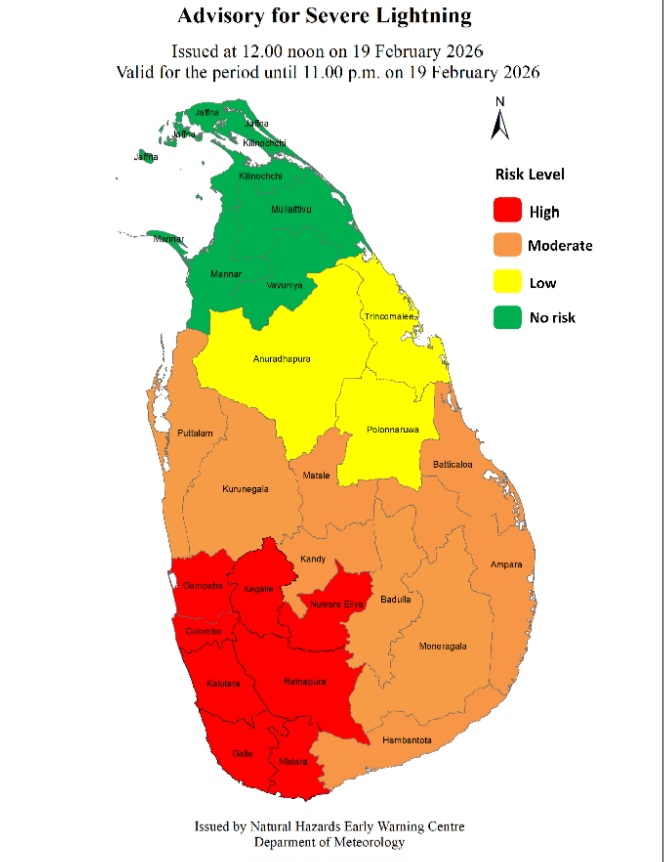
Advisory for Severe Lightning
Issued by the Natural Hazards Early Warning Centre at 12.00 noon 19 February 2026 valid for the period until 11.00 p.m. 19 February 2026
The public are warned that thundershowers accompanied with severe lightning are likely to occur at some places in in the Western and Sabaragamuwa provinces and in Nuwara-Eliya, Galle and Matara districts after 2.00 p.m.
There may be temporary localized strong winds during thundershowers.
General public is kindly requested to take adequate precautions to minimize damages caused by lightning activity.
ACTION REQUIRED:
The Department of Meteorology advises that people should:
Seek shelter, preferably indoors and never under trees.
Avoid open areas such as paddy fields, tea plantations and open water bodies during thunderstorms.
Avoid using wired telephones and connected electric appliances during thunderstorms.
Avoid using open vehicles, such as bicycles, tractors and boats etc.
Beware of fallen trees and power lines.
For emergency assistance contact the local disaster management authorities.
News
Navy and Coast Guard seize 04 Indian fishing vessels poaching in Sri Lankan waters
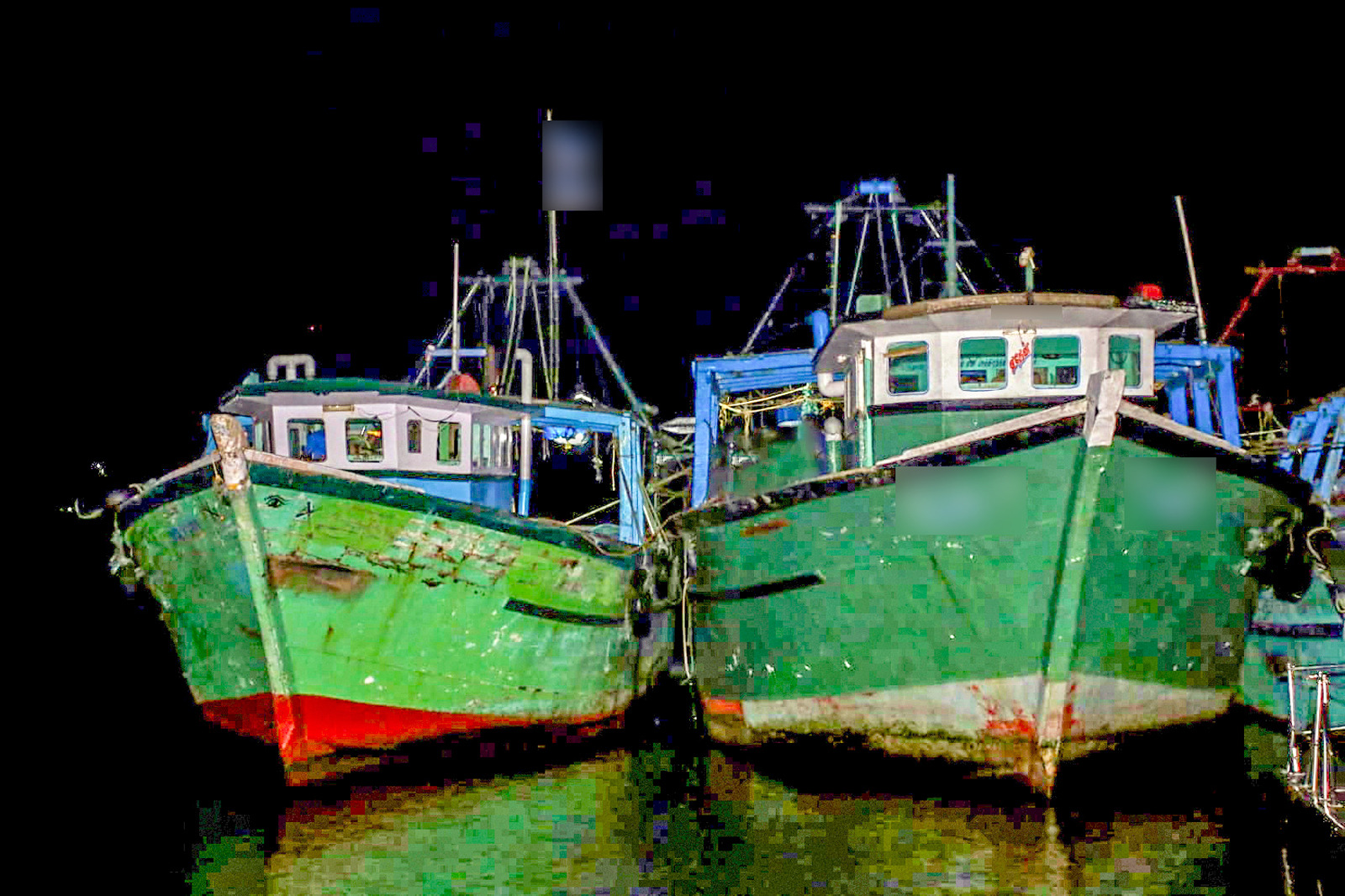
During operations conducted in the dark hours of 18 Feb 26, the Sri Lanka Navy and Coast Guard seized 04 Indian fishing boats and apprehended 22 Indian fishermen, while they were poaching in Sri Lankan waters north of Mannar and off the Delft Island, Jaffna.
Recognizing the detrimental effects of poaching on marine resources and the livelihoods of local fishing communities, the Sri Lanka Navy and Coast Guard continue to conduct regular operations as proactive measures to deter such activities. These efforts underscore the collective robust approach and steadfast commitment to safeguarding the nation’s marine ecosystems while ensuring the economic security and wellbeing of its citizens.
The 02 fishing boats along with the 10 fishermen held in Mannar were handed over to the Fisheries Inspector of Mannar and the remaining 02 fishing boats intercepted off the Delft Island, together with 12 Indian fishermen were handed over to the Fisheries Inspector of Myliddy for onward legal proceedings.
-

 Life style5 days ago
Life style5 days agoMarriot new GM Suranga
-

 Business4 days ago
Business4 days agoMinistry of Brands to launch Sri Lanka’s first off-price retail destination
-

 Features5 days ago
Features5 days agoMonks’ march, in America and Sri Lanka
-

 Features5 days ago
Features5 days agoThe Rise of Takaichi
-

 Features5 days ago
Features5 days agoWetlands of Sri Lanka:
-

 News5 days ago
News5 days agoThailand to recruit 10,000 Lankans under new labour pact
-

 News5 days ago
News5 days agoMassive Sangha confab to address alleged injustices against monks
-
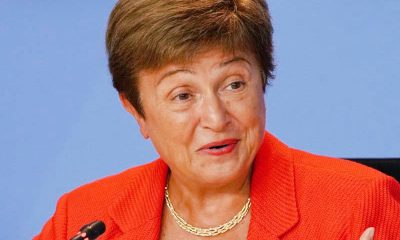
 News3 days ago
News3 days agoIMF MD here








